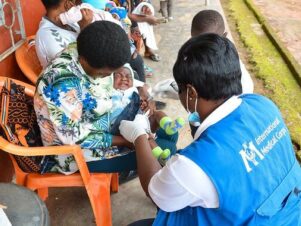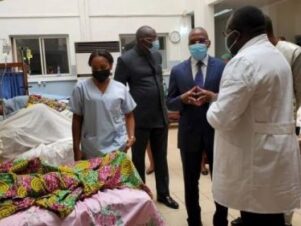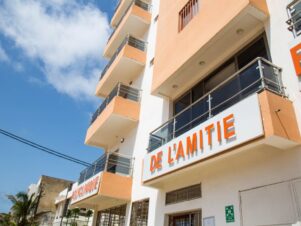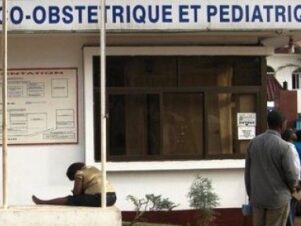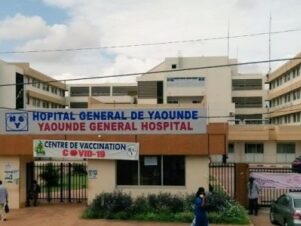Healthcare in Cameroon is a mix of public and private services, each with its strengths and weaknesses. Whether you live in a city like Yaounde or in a rural area, you’ve likely experienced the challenges of finding quick, reliable, and affordable healthcare. With government-run public hospitals and private clinics scattered across the country, the big question many people ask is: Which one is better for you and your family?
Choosing between public and private healthcare in Cameroon depends on several factors—your budget, location, urgency, and the kind of care you need. In this article, we’ll break down both systems to help you make informed decisions about your health. By the end, you’ll have a clearer picture of how to navigate the healthcare system in Cameroon with confidence.
A Quick Look at Healthcare in Cameroon

When you look into healthcare in Cameroon, you’ll discover a hierarchical system managed by the Ministry of Public Health. It works across three main levels: central (strategic), regional (technical), and district (operational). The Ministry at the top sets policies and oversees hospitals, while regional delegations and district health centers handle local implementation.
Both public and private sectors operate in Cameroon. Public facilities are the backbone of health services, especially outside major cities, while private clinics—often funded by religious groups, NGOs, or for-profit enterprises—serve mainly urban, better-off communities.
Despite this dual setup, the system faces real challenges: underfunding, scarce medical staff, outdated infrastructure, and uneven access. Many rural areas suffer from a lack of equipment and trained professionals, and public hospitals struggle to meet demand.
What to Expect in Public Healthcare Facilities
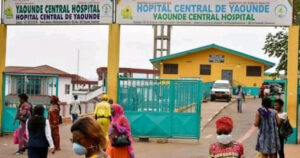
When you visit a public healthcare facility in Cameroon, you'll likely find a wide range of basic services—from general consultations and surgeries to maternal care and vaccinations. These services are often subsidized, making them more affordable.
Public clinics and hospitals are generally accessible—you’ll find at least one in nearly every town or district. But that convenience can come with trade-offs. You might have to wait hours just to see a nurse due to staff shortages and overcrowding. Many facilities still use outdated equipment, and supplies like medications or lab tools may be limited, especially in remote areas.
You’ll also find that many people must pay out of pocket for medicine or services—even in hospitals that are supposed to offer subsidized care. Situations like strikes or funding delays can slow things down further.
What to Expect in Private Healthcare Facilities

When you turn to private healthcare in Cameroon, you’ll often experience faster access to services, from general consultations to specialized care—think cardiology, pediatrics, or obstetrics. Facilities like the Polyclinique du Palais in Yaoundé offer a clean, welcoming environment where experienced doctors work with cutting‑edge equipment and even provide free vaccinations for babies 0–15 months.
Another example is Clinique Wellstar Bastos—a modern clinic in Bastos, Yaoundé—where you can find a wide range of specialists, from nephrology to pediatrics, and services like radiography, ECGs, ultrasounds, and lab tests. Many private clinics operate 24/7 and even accept top insurance providers like AXA, Cigna, or BEAC.
Of course, better care comes with higher costs. Expect to pay more, often out of pocket per consultation or test. Also, private clinics are mostly in big cities—many towns don’t have one nearby, making access tricky if you're outside Yaoundé or Douala.
Key Differences Between Private and Public Healthcare in Cameroon

Here’s a quick side‑by‑side comparison to help you see the difference at a glance:
- Cost is Low or subsidized for Public Healthcare and Higher (mostly out‑of‑pocket) for Private Healthcare.
- Speed of Service for Public Healthcare is Often slow and Usually fast for Private Healthcare.
- Quality of Equipment for Public Healthcare is Basic or older and Often modern and clean for Private Healthcare.
- Availability for Public Healthcare is Widely available (urban & rural) and Mostly in urban centers for Private Healthcare.
Public healthcare may cost less and reach more areas, but it can be slow and under‑equipped. Private clinics offer speed, comfort, and quality—but for a price and only in cities.
Also read about Ultimate Guide to L’Hôpital Général Yaoundé
Which One Should You Choose?

Figuring out which healthcare option is best for you depends on a few key factors:
- If you’re tight on budget, public facilities may be your go‑to—they’re more affordable and closer to home.
- If speed, comfort, or cleaner environments matter to you, private healthcare offers better facilities and shorter wait times.
- In emergencies, if a public hospital is nearby, don’t wait—seek care immediately, even if it means compromising comfort.
Insurance matters: some health insurance plans only cover public facilities or specific private clinics—check your policy before deciding.
Ask yourself: Can you wait, or is your condition urgent? If time and comfort are priorities and you can afford it, private care might suit you. But if money or location is a concern, public healthcare still plays a vital role.
Real Stories: What People Are Saying

Hearing real-life experiences can help you connect and trust the system better:
“I had to wait 4 hours for a doctor at the public hospital,” says one young patient who visited a district hospital near Yaoundé. In public healthcare in Cameroon, long queues and staff shortages often lead to frustrating waits—especially for minor complaints.
Another patient explains: “I paid more at a private clinic, but the doctor saw me in 10 minutes.” Private clinics, though expensive, often deliver faster service and greater attention. Being out‑of‑pocket isn’t easy—but for many, the time saved and respectful care feels worth the cost.
A third testimonial: someone noted that after being treated at a private facility, they felt genuinely heard and supported—a stark contrast to feeling rushed or ignored in public settings.
These stories humanize the healthcare system and highlight real trade‑offs: cost versus comfort, wait time versus attentiveness.
Tips to Navigate the Healthcare System in Cameroon
Here are helpful tips that can make your healthcare experience smoother:
- Always carry valid ID and enough cash—many facilities, public or private, require immediate payment.
- Ask for the price upfront—before doing any lab test or procedure, check how much you will pay.
- Seek a second opinion if uncertain—especially when facing surgery or expensive treatments.
- Use digital tools if available—some hospitals and clinics share schedules, costs, and doctor availability online.
Both public and private healthcare in Cameroon offer real value—but also come with trade‑offs. Public facilities are more affordable and accessible even in rural areas, yet may lack modern equipment and face long waits. Private clinics bring comfort, speed, and advanced services—but at a higher cost and mostly in cities. Ultimately, your choice depends on your needs, budget, and urgency. Remember: depending on your location, financial situation, and what matters most to you—care accessibility, speed, or quality—either option might be the right one. Now you know what to expect, you can make better healthcare choices for yourself and your family.
Also read about The Ultimate Guide to Centre Médical CEMRIO Yaounde

Frequently Asked Questions (FAQ)
Is private healthcare in Cameroon expensive?
Yes, private care often costs more, with consultation and lab test fees typically paid out of pocket. Clinics in urban areas may charge between $20–$50 per visit.
Are public hospitals reliable for emergencies?
Public hospitals like the Central Hospital of Yaoundé or Douala General are equipped for emergencies. However, they may experience delays or overcrowding. Access remains limited in rural areas.
Also read about The Ultimate Guide to Labo Prima Yaounde
Can I use insurance in private hospitals?
Yes—many international and private health insurance plans cover select private facilities. But coverage varies, so always confirm with your insurer first.
What are some of the best private hospitals in Cameroon?
Top-rated private options include Clinique Pasteur in Yaoundé, and Polyclinique de la Caisse in Douala. They offer specialized care, shorter waits, and modern amenities.
How can I find a specialist doctor?
Major cities like Yaoundé and Douala have hospitals and clinics linked to universities and teaching centers—like the University Teaching Hospital (CHU) or Central Hospital of Yaoundé—where you can access specialist care.

